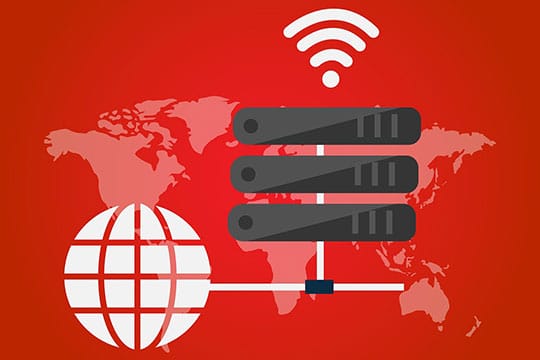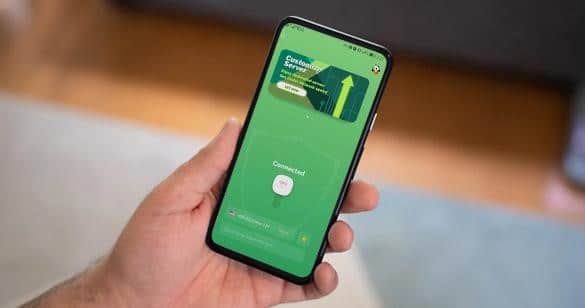Living in this digital age, modern people tend to take more time in the virtual internet world. We browse various information here, view HD videos, play online games, and make file sharing & download in only a few clicks or taps. After the outbreak of the COVID-19 pandemic in 2019, it’s also quite common for the general public to completely work and learn at home with a smart device.
We usually use a computer or mobile phone to send web access requests and receive expected data. And actually what makes a successful connection between the device and network happen is just the unique address of the device, which is known as an IP address (wiki). The truth is that IP addresses not only play an essential role during the internet communication process but also tell the world your geolocation and ISP (Internet Service Provider) information. Moreover, your ISP and network administrator can know your digital footprint via the IP address so that your browsing histories and habits will be revealed easily, the hackers can rely on your IP number to perform attacks and commit cybercrimes…
Therefore, if you value your online privacy and security, you are suggested to hide your IP address, especially when dealing with sensitive information and materials. For more detailed reasons, please go over the following reason list.
1. Protect your data when using public Wi-Fis

Public Wi-Fi networks do offer great convenience, but many users are unaware of its potential risks. Nowadays, free unsecured public Wi-Fi hotspots are the top targets for hackers to launch attacks and steal users’ credit/bank card information for further financial fraud. Also, as long as other individually identifiable information is fallen into the cybercriminals’ power, they may sell them on the dark web, take over your account, or extort you directly.
To upgrade the security level, you’re supposed to prepare a VPN on your machine since VPN’s internal encryption is able to lock all traffic and data tightly so that the public Wi-Fi hackers are left with no chance to break and decrypt them anymore. Surely the most recommended way to stay safe on public Wi-Fi is not doing shopping things, handling crucial business emails, sharing anything here, and only making HTTPS/SSL connections.
Recommended for you: Online Privacy Best Practices: How to Protect Your Digital Data?
2. Bypass ISP monitoring, tracking, and throttling

As a rule, all internet service providers/ISPs will track users’ online activities and keep them recorded for data retention, bandwidth throttling, or profit usage (like selling them to advertiser agencies). Besides, the data tracking may also cover any of your unencrypted file downloads and sharing, social communications, searched items, network connection time, accounts & passwords, and so forth. In countries with heavy internet censorship, ISPs also help the government track locally illegal behaviors like P2P downloads.
Whether you’re a victim of the ISP throttling, or simply want to keep your online actions private and invisible from the ISPs, running a VPN in the background is an effective way to stop the ISP tracking and throttling. This way, you can easily say goodbye to throttled speed, stream high-definition media files fluently, play online games without lag, and download large files to the local hard drive fastly. At the same time, as long as your IP address is masked by VPN, the tailored ads won’t bother you as they do before.
3. Regain the ability to access geo-blocked content

Different countries and regions have varying content censoring situations. Some provide the average people free access to the internet while some utilize a geo-blocking approach to block the world’s leading social media platforms, chatting apps, news websites, P2P file share sites, and still many politically sensitive applications. We can understand the necessity for authorities to perform content restrictions for the sake of national security, but a large number of common customers only want to do daily communication, dig out and view more information online, as well as enjoy the mainstream internet services just like others do, it’s unfair for them to lose the chance from the very beginning.
Hiding an IP address with a VPN is currently the most prevalent method to override geo-filtering and reclaim internet freedom. Once you “quit” your original IP address and route all of the traffic via another proper (foreign) IP address, you can prevent censorship and unblock any banned apps, games, and websites as you like.
Top-tier VPN applications often give a huge number of servers throughout the world to cater to various demands. Set PandaVPN for example, has over 3000 servers in 170+ worldwide locations now, covering all five continents and notable VPN server countries like the US, Iceland, Estonia, Canada, Malaysia, Germany, Switzerland and so similar. You can pick any server location with well internet freedom and good protection on internet privacy and speech freedom at will.
4. Enjoy streaming services anywhere

Similarly, content licensing issue leads to quite many streaming resources unavailable in certain places too. That’s the reason why users often encounter streaming movies/shows that won’t play errors when going abroad, with an error message like “content unavailable in your location”. Nearly all streaming services like Netflix, Amazon Prime Video, HBO Max, Hulu, and Disney+ distribute media libraries differently by country. Only when they own the license right of a movie or TV show in one place can they place the title into the local library.
This is also another kind of geographical restriction. To watch your favorite blockbusters and TV series when traveling to foreign nations or accessing other regions’ libraries, you can leverage a piece VPN to hide your IP address and route traffic through a VPN server in the target country to go ahead. Although some streaming services have applied VPN and proxy blocking mechanisms, quality VPN apps with a high number of servers have enough IP addresses to avoid being banned by streaming services completely.
5. Maintain the online privacy and be truly anonymous online

Data breaches become increasingly frequent nowadays. In recent years, it’s not surprising to see reports saying millions of user records are leaked, so online anonymity and privacy protection are quite important for both firms and individuals.
For general netizens, getting a VPN to hide IP addresses and transmit data via encrypted tunnel is the easiest way to safeguard identity on the web. Not only the above-mentioned ISPs and governments but also the ad networks, search engines, websites you visit, employers, and schools are not able to spy on your web browsing. If you are an advanced user, we suggest you combine VPN and Tor private browser to add another layer of privacy and security.
You may like: Chrome vs Firefox: The Performance, Security & Privacy Comparison!
Multiple ways to hide IP address

After finishing the reasons for IP address hiding, let’s get together to have a look at several easy ways to hide your IP address.
1. Using a VPN

There’s a sea of VPN apps, you can select a free or paid VPN according to your real requirement. But to a large degree, paid VPNs are more reliable thanks to more VPN servers, fast and stable connection speed, advanced VPN encryption, and instant tech support.
To hide your IP address with a VPN, you only need to select an expected server to connect successfully. After that, all your traffic and data will be shielded. Decent VPN apps are also preloaded with advanced features like Split Tunneling (wiki) to customize which apps or websites to run or bypass VPN as needed.
2. Using a proxy

A proxy acts just like a gateway and features masking IP addresses too. However, it’s not as secure as a VPN owing to the lack of internal encryption. It’s not a big deal if one only wants to change the IP address for accessing geo-limited content.
3. Using the Tor browser

Tor is a known free private web browser from a non-profit organization, that aims to help people fight against tracking, surveillance, and censorship. Thousands of volunteer-run servers form the Tor browser’s core part – Tor relays, with which your traffic can be encoded and protected firmly. Tor is an ideal tool for people to anonymize web traffic, visit the dark web, and circumvent firewalls and censorship. Nevertheless, it may deliver slower than VPN and proxy due to the multi-layer work mode.
You may also like: Privacy, Security & Health Risks of Social Media & How to Prevent Those.
Verdict

Do you need to hide your IP address? It depends on whether you care about your online privacy and security, and whether you want to have the basic human right of information acquisition and speech freedom. The truth is considering whatever activities can be tracked through the IP addresses for further control, more and more people get used to hiding this identification number and surf the web with another one on a daily basis. Less supervision, more freedom, why not?





